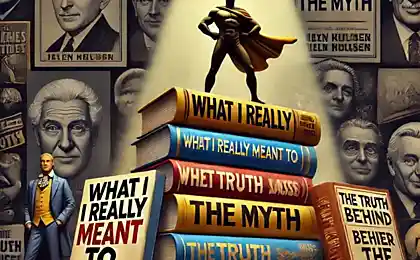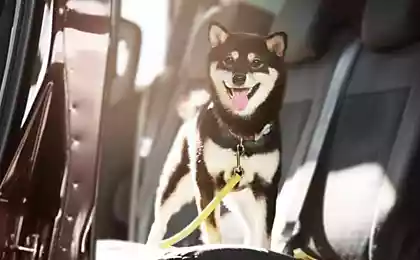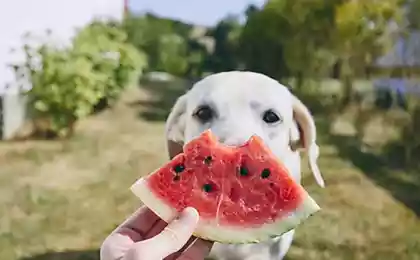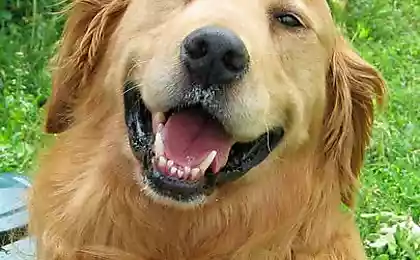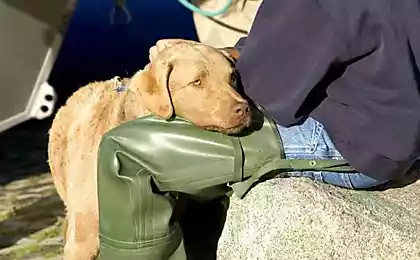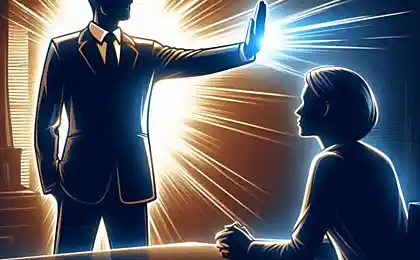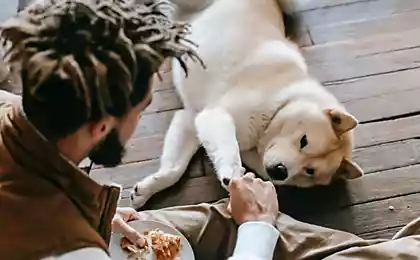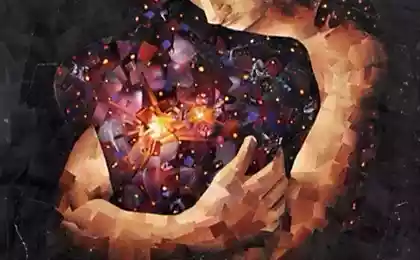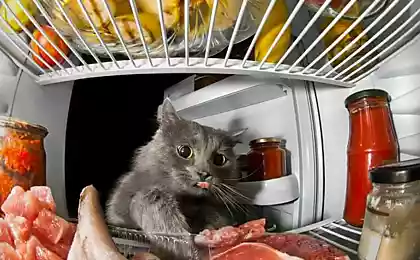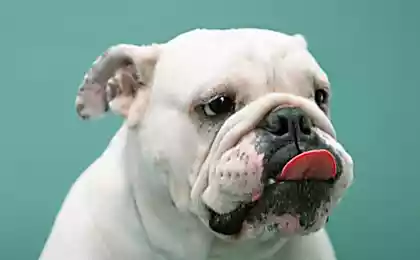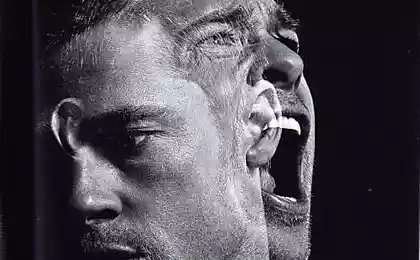591
What it really means to blame your pet's look
The guilty look
Every dog owner knows that guilty look when he finds a torn cushion or a fresh mound on the carpet. Of course, we immediately Express their sincere indignation with the words "Who did this?",don't forget to add the right intonation and facial expression. It is in these moments pet usually either trying to hide or looks at you with guilt in his eyes.
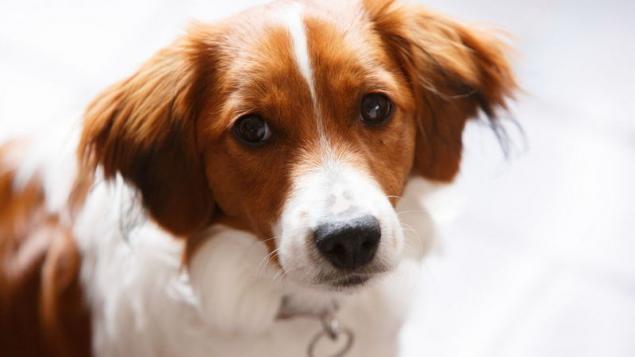
But, actually, why do we think that this view expresses guilt?It's simple: we the people, and therefore appreciate the emotions of other beings through the prism of their own. We begin to argue from the point of view of our logic: the dog was home alone and did what is not supposed to do. And now we have been exposed, and what must she feel? Of course, guilt.
In fact, it is not so. Dogs do not feel guilt, but much more simple and common sense: fear.
You don't have to take our word for it. This conclusion is based on a study conducted in 2009 by animal psychology and behavior of the dog by Dr. Alexandra Horowitz. She is the author of several studies, including "the Dog from nose to tail: what she sees, feels and knows" (2009) and "the World of dogs — the world of smells" (2016).
So the study of the "Guilty look": how to understand your dog", published in 2009, is aimed at the study of how people understand the emotions of their Pets, as well as on the classic errors that makes the man, trying to recognize a particular emotional your pet. One of the main mistakes is the famous "guilty look".
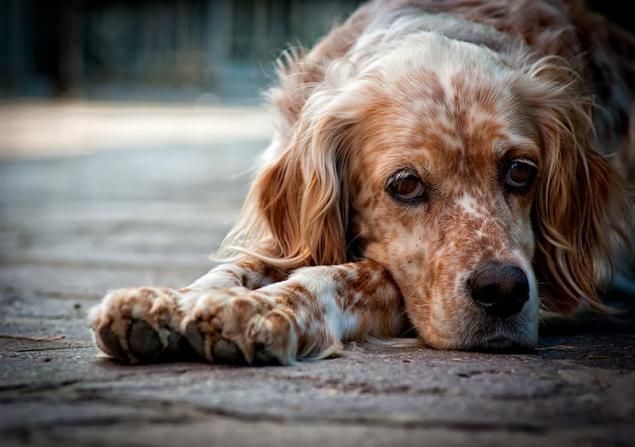
How does it look? The dog pressed to the ground (shrinks at all possible) and looks at you from the bottom up, showing the whites of his eyes.
In the study on the emotions of dogs and their expressions, are shown, how often do people humanize their Pets and give their emotions the wrong shade.
The experiment was conducted in stages. At each stage, has varied the conditions that allowed or did not allow the dog to break the rules set by the host (e.g. to eat, something that he was forbidden to eat). While the owner was out of the room at different times, during which some Pets had eaten the forbidden treat, and some not. And the awareness of the owner about the offense (his reaction when he returned), were also different.
And what did the experiment? No connection between the eye and the degree of culpability of the dog was observed. But it was clearly see another pattern: if the anger of the owner, he was punished, "guilty look" of the animal was more pronounced than in cases when the owner was limited to the accusatory tone and verbal expression of his anger. Moreover, the emotion was much stronger and brighter in dogs, which, actually, was guilty of nothing — they did not eat the treat, and therefore the guilt they must have felt.
Thus, the experiment allowed to conclude that the "guilty look" is associated with fear of punishment, not with the assessment of his crime. Simply put, when we criticize dogs for the offense, they feel fear (fear of punishment), not guilt(understanding that you did something wrong). But can dogs actually feel guilty? Maybe Yes, maybe no.

"Let's start with the fact that, despite the fact that the dog's brain and a human brain have many similarities, they differ as much," says Dr. Horowitz.
The idea of thinking about their actions and ability to goal-setting is a complex process, which involves the ability to evaluate their actions. Such behavior has never been observed in dogs. "There are studies showing some basic ability to plan with the other animals, but not dogs,"- says Alexander.
Does this mean that dogs in principle are not capable of purposeful action? No, we don't know. The fact is that to test this experimentally is very difficult, and at the moment we have no precise information concerning this topic. Yes, dogs have a memory, but to assume that it works the same as human, be too unreasonable and, most likely, wrong. "They do not Express their thoughts through language, they don't talk about it. Do they think about their plans for the day or your memories while you wait? Maybe. But we don't know".
It is because we lack knowledge about the specifics of the dog's emotions, we try to explain their behavior, connecting our own experiences and our own emotions.
"When we take home a puppy or an adult dog, we first observe her, to understand how it reacts to actions and stimuli. Next, we try to imagine what can think of this being, a way of thinking which we did not know, — adds Dr. Horowitz, we just use our language to predict the reaction of other, different from us creatures, which is now part of our lives."
translation Anna Kiseleva
P. S. And remember, just changing your mind — together we change the world! ©
Source: mixstuff.ru/archives/125397
Every dog owner knows that guilty look when he finds a torn cushion or a fresh mound on the carpet. Of course, we immediately Express their sincere indignation with the words "Who did this?",don't forget to add the right intonation and facial expression. It is in these moments pet usually either trying to hide or looks at you with guilt in his eyes.

But, actually, why do we think that this view expresses guilt?It's simple: we the people, and therefore appreciate the emotions of other beings through the prism of their own. We begin to argue from the point of view of our logic: the dog was home alone and did what is not supposed to do. And now we have been exposed, and what must she feel? Of course, guilt.
In fact, it is not so. Dogs do not feel guilt, but much more simple and common sense: fear.
You don't have to take our word for it. This conclusion is based on a study conducted in 2009 by animal psychology and behavior of the dog by Dr. Alexandra Horowitz. She is the author of several studies, including "the Dog from nose to tail: what she sees, feels and knows" (2009) and "the World of dogs — the world of smells" (2016).
So the study of the "Guilty look": how to understand your dog", published in 2009, is aimed at the study of how people understand the emotions of their Pets, as well as on the classic errors that makes the man, trying to recognize a particular emotional your pet. One of the main mistakes is the famous "guilty look".

How does it look? The dog pressed to the ground (shrinks at all possible) and looks at you from the bottom up, showing the whites of his eyes.
In the study on the emotions of dogs and their expressions, are shown, how often do people humanize their Pets and give their emotions the wrong shade.
The experiment was conducted in stages. At each stage, has varied the conditions that allowed or did not allow the dog to break the rules set by the host (e.g. to eat, something that he was forbidden to eat). While the owner was out of the room at different times, during which some Pets had eaten the forbidden treat, and some not. And the awareness of the owner about the offense (his reaction when he returned), were also different.
And what did the experiment? No connection between the eye and the degree of culpability of the dog was observed. But it was clearly see another pattern: if the anger of the owner, he was punished, "guilty look" of the animal was more pronounced than in cases when the owner was limited to the accusatory tone and verbal expression of his anger. Moreover, the emotion was much stronger and brighter in dogs, which, actually, was guilty of nothing — they did not eat the treat, and therefore the guilt they must have felt.
Thus, the experiment allowed to conclude that the "guilty look" is associated with fear of punishment, not with the assessment of his crime. Simply put, when we criticize dogs for the offense, they feel fear (fear of punishment), not guilt(understanding that you did something wrong). But can dogs actually feel guilty? Maybe Yes, maybe no.

"Let's start with the fact that, despite the fact that the dog's brain and a human brain have many similarities, they differ as much," says Dr. Horowitz.
The idea of thinking about their actions and ability to goal-setting is a complex process, which involves the ability to evaluate their actions. Such behavior has never been observed in dogs. "There are studies showing some basic ability to plan with the other animals, but not dogs,"- says Alexander.
Does this mean that dogs in principle are not capable of purposeful action? No, we don't know. The fact is that to test this experimentally is very difficult, and at the moment we have no precise information concerning this topic. Yes, dogs have a memory, but to assume that it works the same as human, be too unreasonable and, most likely, wrong. "They do not Express their thoughts through language, they don't talk about it. Do they think about their plans for the day or your memories while you wait? Maybe. But we don't know".
It is because we lack knowledge about the specifics of the dog's emotions, we try to explain their behavior, connecting our own experiences and our own emotions.
"When we take home a puppy or an adult dog, we first observe her, to understand how it reacts to actions and stimuli. Next, we try to imagine what can think of this being, a way of thinking which we did not know, — adds Dr. Horowitz, we just use our language to predict the reaction of other, different from us creatures, which is now part of our lives."
translation Anna Kiseleva
P. S. And remember, just changing your mind — together we change the world! ©
Source: mixstuff.ru/archives/125397


